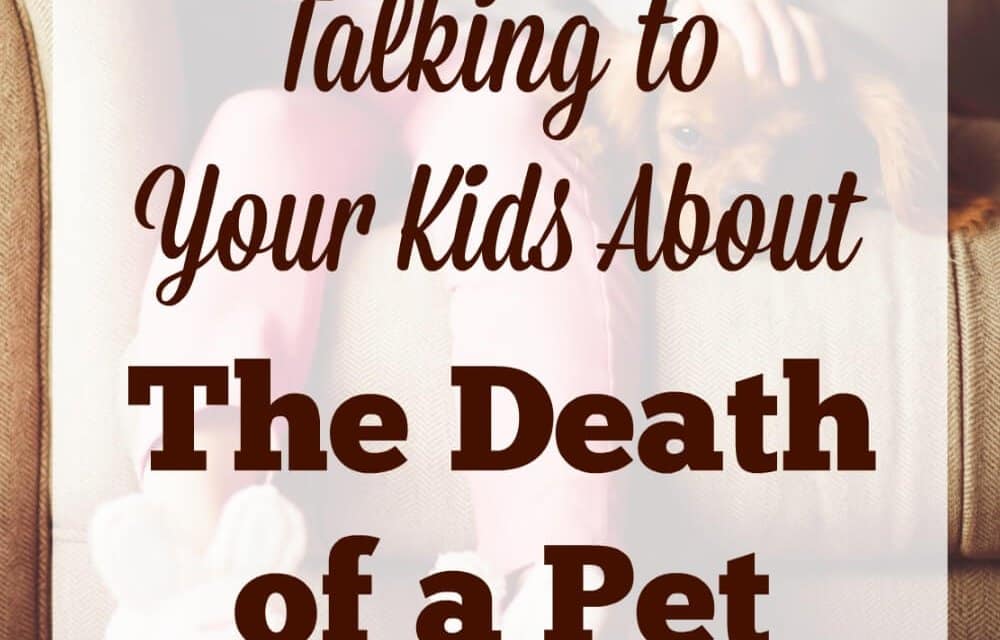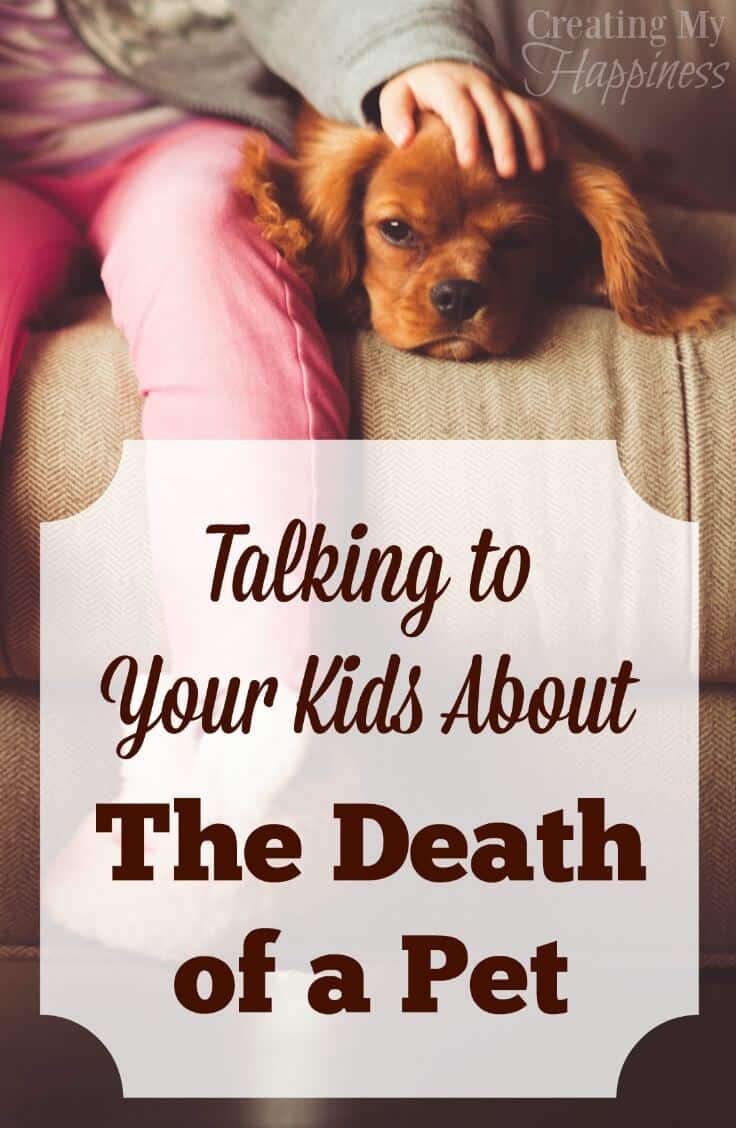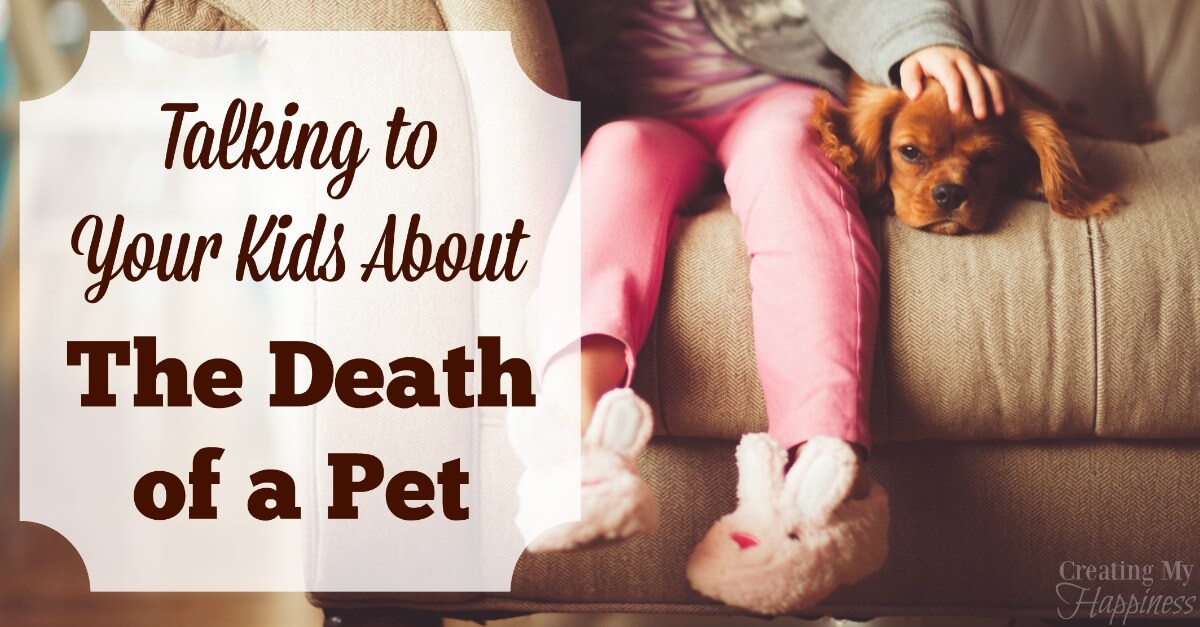These days pets aren’t just animals, they’re part of the family. They sleep with us, snuggle with us, play with us, and comfort us when we’re down. They’re always happy to see us, and get excited at the littlest thing; a treat, a ball, or even just a “good boy!”
For kids, the connection can be even stronger. Pets are often their first playmates, and in many cases, the first real loss they’ll suffer. It can be hard for young children to process the fact that they will never see their furry friend again, so you may have to remind them a few times that Buddy isn’t coming back.
Before
In some cases, we know when our pets are going to pass because we’ve made the decision to have them euthanized. In those instances, it’s best to talk with your child prior to the procedure. Let them know what’s going to happen, ask questions, and say goodbye. I’m not going to lie. It sucks.
What to say. If your pet has been sick, or in pain for a while, your child most likely knows it. They know that he can’t run and play the way he used to, and that they’ve been told (multiple times) to be gentle. Let them know that the vet has tried her best, but there’s nothing she can do to help, and the nicest thing we can do for Buddy is to help him die and be free of his pain.
What not to say. Often times we try to soften the blow of losing a pet by telling our kids that their pets went to sleep or went to live on a farm. Unfortunately, this can cause a great deal of confusion for kids, and even fear. They may not want to go to sleep anymore, or they may continuously ask to go visit their beloved pet. Here honesty is the best policy.
After
If you’ve been able to prepare your child for their pet’s passing, you may want to just follow their lead in the days and weeks after. Kids sometimes take a longer time to process death – it takes a while for them to realize their pet is never coming back – so give them space and time, and don’t be surprised if they have questions or concerns weeks or even months later.
If the death was sudden, now’s the time to sit with your child and explain what happen. Honesty is best, details are not. Again, try to stay away from euphemisms like “he went to sleep,” or “passed away.” A simple, “Rusty got hurt and the vets did everything they could to help him, but nothing worked and he died,” is enough detail for a young child.
It’s okay to cry. Often times parents feel they have to be strong for their children, and they do. But strength doesn’t mean not crying. Instead, let your kids see that you’re sad. That way they’ll know it’s okay, normal even, that they’re sad, too. They’ll also see that, though you’re sad, life does go on and everything will be okay.
Say goodbye. As a family find a way to say a final goodbye to your furry friend. You could have a ceremony, write a letter, or say a prayer. Finding a way to honor our lost pets helps everyone move on.
Move forward. Inevitably the question of getting another pet will come up. There’s no right answer as to when it’s the right time to get a new pet. It depends on when your family feels ready. What’s most important is that your kids understand that a new furry playmate doesn’t replace the one that’s lost. You’re just adding a new family member (or 2)!







